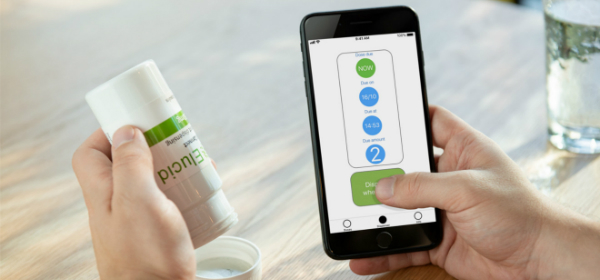
Adherence to medication prescriptions is a cornerstone of positive patient outcomes. A 2018 study of medication nonadherence at the University of California, San Francisco School of Medicine found that 40% to 50% of patients with chronic conditions do not follow their prescriptions. This leads to more than 100,000 preventable deaths and $100 billion in otherwise unnecessary medical costs each year. Cost of medication, forgetfulness, and refusal are just a few of factors in nonadherence. We’ve looked at smart pill boxes and bottles developed by PillDrill, EllieGrid, AdhereTech, and others designed to help patients remember to take their medicine and inform caregivers when they don’t.
Euclid mHealth’s Pill Connect smart pill dispensing technology allows health services, and pharmaceutical trial investigators including Contract Research Organizations (CROs) and Contract Manufacturing Organizations (CMOs) monitor medication adherence in clinical trials. Euclid also sells Pill Connect directly to Physicians to monitor their patients. Pill Connect is not a consumer market product.
The Pill Connect bottle works in conjunction with an app on the patient’s smartphone. The bottle holds one prescription and can be set to dispense various pill and capsule sizes. The minimum supply that can be stored in the bottle is 30 pills or capsules. The bottle stays locked other than during prescribed times to prevent multiple dosing. When it’s time for a patient to take a pill, a reminder appears in the app. If the patient takes the medication, that data is sent to a data center. If the patient does not take the pill at the appointed time, the system can be pre-configured to send a text message or a phone call. Whether or not the patient subsequently takes the medication, that data is also uploaded to the data center. Whether the patient is under a doctor’s care or part of a trial, the data gathered and sent by the Pill Connect bottle and app provide a full record of adherence.
Euclid’s first real-world test with Pill Connect assessed 10 subjects using two bottles each for 13 days for a CRO. The test report showed 91% of the doses were successfully dispensed and Pill Connect delivered the correct quantity of pills 97% of the time. Overall, data from successful deliveries transmitted accurately. The subjects all reported that the Pill Connect bottle was easy to use.
As Euclid mHealth and other companies continue to develop smart medication delivery and reporting technologies, the hope is medication adherence overall improve. Smart bottles and boxes won’t result in perfect adherence, but even a 10% improvement could potentially save 10,000 lives and $10 billion in preventable medical costs.

